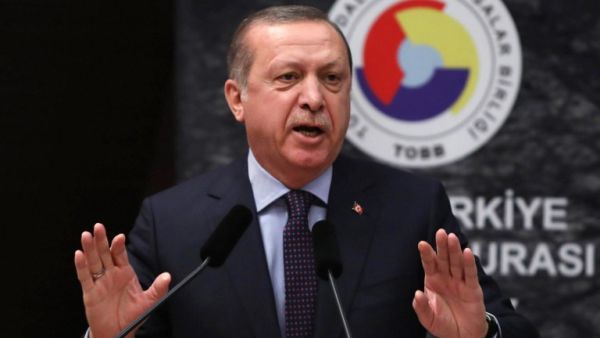Turkish President Recep Tayyip Erdogan has approved a constitutional reform bill, the presidency said Friday, in a move that paves the way for a referendum on the package that aims to vastly empower his office.
The reform package was passed in parliament in January. It is due for a public vote on a Sunday, two months after it is formally law. The bill must still be entered into the Official Gazatte.
Deputy Prime Minister Numan Kurtulmus said the referendum would likely take place on April 16. The referendum requires a simple majority of voters to pass.
Critics say the amendments will weaken checks and balances and the role of parliament and leave too much power concentrated in the office of the president, while damaging the independence of the judiciary. The government says it will bring stability.
Erdogan, who has been at the helm of Turkey since 2003 - first as premier and since 2014 as president - is accused of growing authoritarianism.
If approved by the public, the new laws would enable Erdogan, aged 62, to technically remain in office until 2034, should he win future elections.
Unofficial billboards supporting the leader have gone up and Erdogan has already addressed crowds urging them to vote yes.
Campaigning will take place under a state-of-emergency, which opposition supporters say could hurt their efforts to rally against the reform package.
The left-wing and pro-Kurdish sides of the political spectrum are against the new constitution, while Erdogan's ruling Islamic-conservative Justice and Development Party (AKP) is in favour, though segments of its base may still be wavering.
Many legislators of the far-right Nationalist Movement Party (MHP) supported the government but some party members are opposed, amid signs of splits within the nationalist camp.
This week, Erdogan passed an executive order, which removes the powers of the election commission to impose fines on private broadcasters who violate impartiality rules during campaign seasons.
Already, critics say the state broadcasting company is heavy titled in favor of the government.
Since a failed coup attempt last year by a faction in the military led to the imposition of emergency laws, the government has shuttered dozens of opposition and critical media outlets. More than 120 journalists are currently in jail.
By Shabtai Gold








